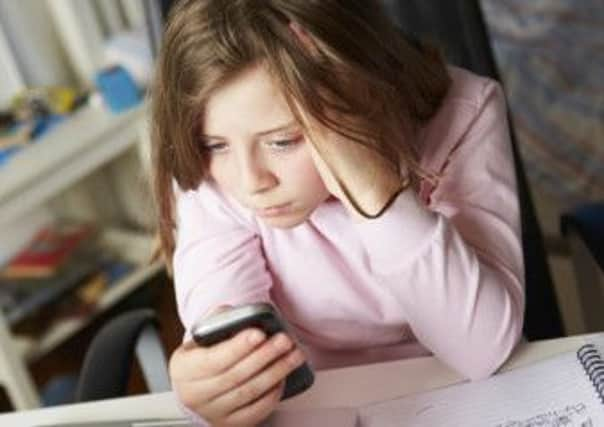The online problem that is harming Britain’s youngsters


THIS should be a great time to be young. Our lives have been transformed by the kind of technological advances that even just a couple of generations back would have seemed the stuff of pure fantasy.
It’s a young person’s world, or so we’re told, one of ever-changing gadgets and social networking sites, a world that’s supposed to make things easier, better even. Yet it seems something isn’t quite right.
Advertisement
Hide AdAdvertisement
Hide AdEarlier this month a study for the Prince’s Trust revealed that as many as 750,000 young people in the UK feel they have nothing to live for.
The charity also said that almost a third of long-term unemployed young people have contemplated taking their own lives.
Whatever way you look at it these are shocking figures that raise questions about the state of our nation’s youth.
The issue was back in the news again yesterday when the charity ChildLine revealed that it had seen a large increase in the number of children contacting it with concerns about online bullying.
Advertisement
Hide AdAdvertisement
Hide AdIts report – entitled Can I Tell You Something? – shows a new and worrying trend of teenagers contacting the service about issues such as self-harm, suicide and online bullying, with the charity reporting a staggering 87 per cent increase in the latter.
ChildLine saw 4,507 instances of cyberbullying in 2012-13, up from 2,410 for the previous 12 months, prompting a warning from its founder Esther Rantzen who said too many British children seemed to be struggling right now.
Many of the young people who contacted ChildLine said that the 24 hour nature of online bullying makes it feel like there’s no escape, leading to low self-esteem, feelings of isolation and, in a few desperate cases, suicide.
More than 1,400 young people also contacted the charity to say they were experiencing racist bullying, up 69 per cent on last year.
Advertisement
Hide AdAdvertisement
Hide AdA common theme was for young people to be called a “terrorist” or a “bomber” and to be told to “go back to where they came from”.
ChildLine founder Esther Rantzen says the report is a wake-up call. “Far too many of the nation’s children seem to be struggling and in despair. It’s so important that we support children to talk about issues and look out for signs that they’re not able to cope. No matter how hard pressed we are, we must commit to giving children time and space to talk about their lives.”
The internet is one of the wonders of the modern world and for many people, especially younger generations, it is as much a part of their lives as walking and talking.
But Sue Minto, head of ChildLine, says there are risks as well as benefits. “Historically bullying was the most common issue young people spoke to us about. We know that increasing numbers of young people now have access to the internet, and the digital world presents more opportunities for bullying meaning that, for some young people, the bullying never stops.”
Advertisement
Hide AdAdvertisement
Hide AdShe believes that one of the reasons for the sharp increase in online bullying is that more young people feel able to speak about what’s happening to them. “Online bullying has also been raised as an issue in the media, which might mean that young people are able to identify more easily and have reached out for help as a result.”
Online bullying tends to affect a slightly older age group, those between 12 and 18, compared with other types of bullying. But one of the problems in tackling it is that isn’t confined to a single place, instead it happens via social networking sites, chat rooms, online gaming sites, and even mobile phones.
Peter Wanless, chief executive of the NSPCC, which runs ChildLine, says today’s youngsters have different problems to contend with than they did in the past. “The issues facing children today are very different from those that faced us as children. Stranger danger, for example, rarely comes up in contacts to ChildLine but depression, self-harm, online bullying and even suicide contacts are increasing exponentially.”
Which is why reports like this help make a difference. “ChildLine is one of the most important sources of information about vulnerable children in the UK,” says Wanless, “and if we are to help young people we need to listen to what they are telling us about the issues they are facing. It is essential that children’s voices, concerns and experiences are shared, understood and addressed.”
ChildLine can be contacted on 0800 1111 or online at www.childline.org.uk